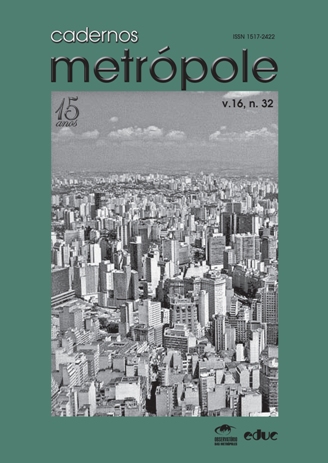Between the fundamental and the contingent: dimensions of contemporary gentrification in urban operations in São Paulo
Keywords:
gentrification, neoliberalism, postmodernity, urban operations, São PauloAbstract
Opposing the direct importation of theories, this paper develops an analytical model for the study of gentrification that encompasses both its generalization as the main policy of neoliberal urbanism and its location in specific urban contexts. This analytical model is based on three necessary dimensions that define the process: 1) production of gentrifiable space; 2) socio-economic upgrading with displacement of vulnerable groups; 3) built landscape transformation. The study of urban operations in São Paulo demonstrates that these fundamental dimensions are mediated by local structures and, in these cases, they are contextualized in individualized urban projects. This paper, thus, explores the multiple scales of gentrification promotion, and emphasizes that forms of unequal space production and resistance to them are also locally produced.Metrics
Downloads
Published
How to Cite
Issue
Section
License
A revista não tem condições de pagar direitos autorais nem de distribuir separatas.
O Instrumento Particular de Autorização e Cessão de Direitos Autorais, datado e assinado pelo(s) autor(es), deve ser transferido no passo 4 da submissão (Transferência de Documentos Suplementares). Em caso de dúvida consulte o Manual de Submissão pelo Autor.
O conteúdo do texto é de responsabilidade do(s) autor(es).


